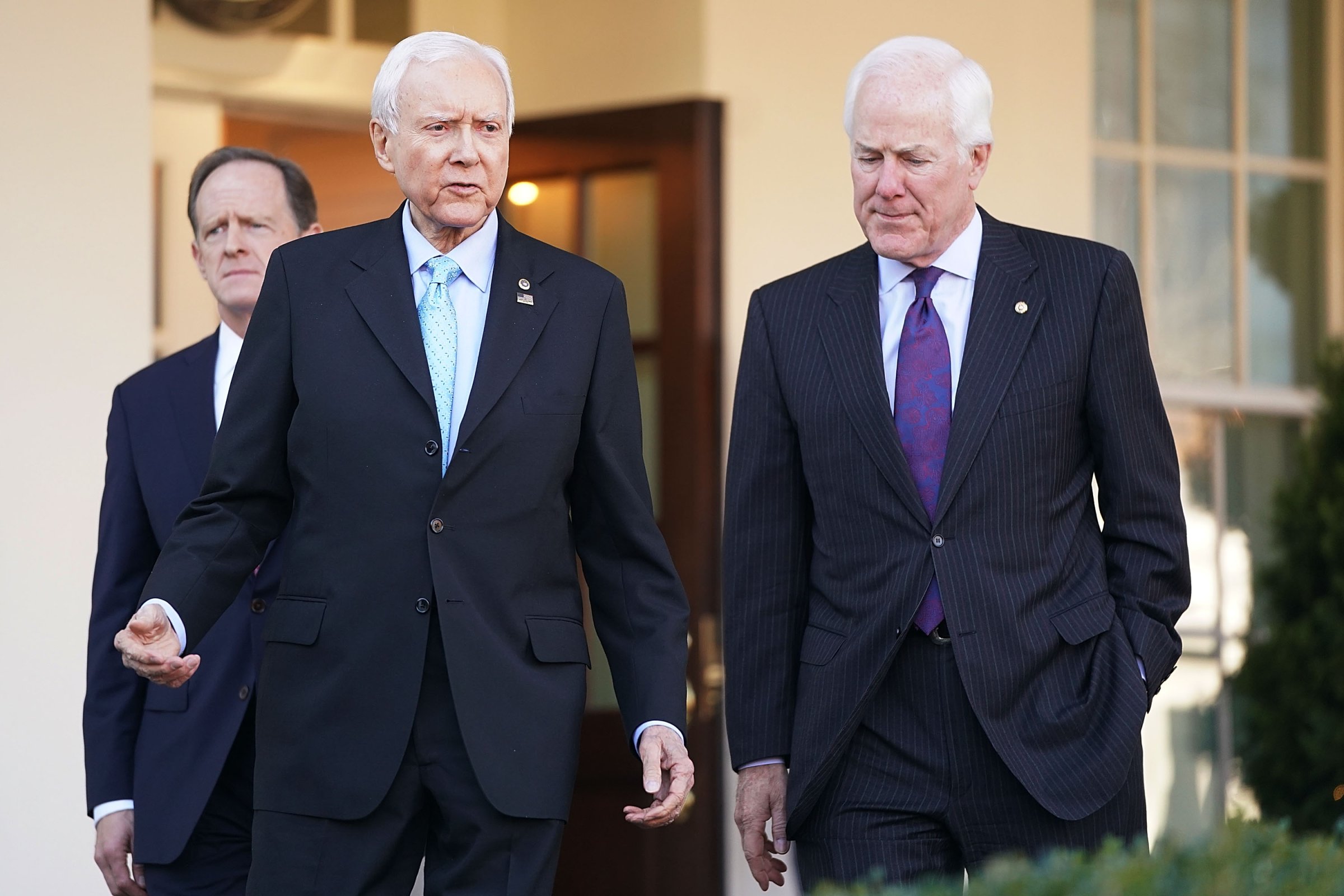
It’s tough to overstate how badly Republicans in Congress want to pass their massive tax reform plan before Christmas. But as the Senate prepares to vote on their version of the bill, a growing number of Republican senators are expressing reservations about the bill before them.
Both Sens. Steve Daines of Montana and Ron Johnson of Wisconsin have said unequivocally that they oppose the current legislation, saying it unduly favors large corporations over small businesses. An aide to Daines told The Hill that the Wisconsin Republican “remains optimistic” that satisfactory changes to the bill are possible.
But time is running out, and the window for victory is narrow. Republicans hold a slim majority in the Senate — 52 of 100 seats — and they can afford to lose just two votes to pass tax reform along party lines under the procedure known as reconciliation, which requires only a simple majority. Far more than two G.O.P. senators have been reluctant to commit their support.
Most dangerously, an unofficial bloc of four Senate deficit hawks has privately convened in recent weeks to share their concerns with the bill’s impact on the deficit, as TIME first reported on Nov. 16. Among them are Sens. Jeff Flake of Arizona and James Lankford of Oklahoma; Sens. Bob Corker of Tennessee and Todd Young of Indiana have also spoken out against legislation over its effects on the deficit.
“As conservatives, we’ve said for a long time that to get ahead of the deficit we have to control our spending and have a growing, healthy economy,” Lankford told reporters on Monday. “Well, if we use all of the tax reductions to just offset, we’ll never get on top of it.”
The tax reform bill, which will amount to the first major changes to the national tax code in more than 30 years, has proven controversial. Democrats have decried it as little more than a boon for the rich that harms lower-income Americans — a view substantiated by a new estimate from nonpartisan congressional budget analysts, which found that Americans making less than $75,000 would be worse off by 2027.
“It would exacerbate inequality and set the middle class back at the worst possible time,” Senate Minority Leader Chuck Schumer said on the Senate floor on Monday afternoon.
The report also holds that tax reform would hike the federal deficit by $1.4 trillion over the next decade, though deficit hawks like Flake are wary that the figure could in fact be higher. In an interview with TIME on Nov. 14, he pointed to various “gimmicks” within the bill: costly provisions — such as one that allows businesses to expense their assets — that will nominally be phased out after five years.
“You phase it out after five years, it fits in this, but we know after five years they’re just going to do it again,” he said.
The tax reform bill also repeals the Affordable Care Act’s individual mandate, which requires Americans to have health insurance. Two Republican Senators, Susan Collins of Maine and Jerry Moran of Kansas, have expressed uncertainty about this tactic, saying it should be handled on its own.
The bill goes to the Senate Budget Committee on Tuesday. There, in an attempt to woo the vote of Alaska Sen. Lisa Murkowski, who proved a crucial swing vote on past attempts to repeal Obamacare, it will be joined with a bill to allow drilling on Alaska’s Arctic National Wildlife Refuge, something that Murkowski supports. But the Budget Committee is also home to two skeptical Republicans — Johnson and Corker — who could use their seats to stymie progress on the bill.
Republicans are hoping to pass it by the end of the week.
More Must-Reads from TIME
- Donald Trump Is TIME's 2024 Person of the Year
- Why We Chose Trump as Person of the Year
- Is Intermittent Fasting Good or Bad for You?
- The 100 Must-Read Books of 2024
- The 20 Best Christmas TV Episodes
- Column: If Optimism Feels Ridiculous Now, Try Hope
- The Future of Climate Action Is Trade Policy
- Merle Bombardieri Is Helping People Make the Baby Decision
Contact us at letters@time.com